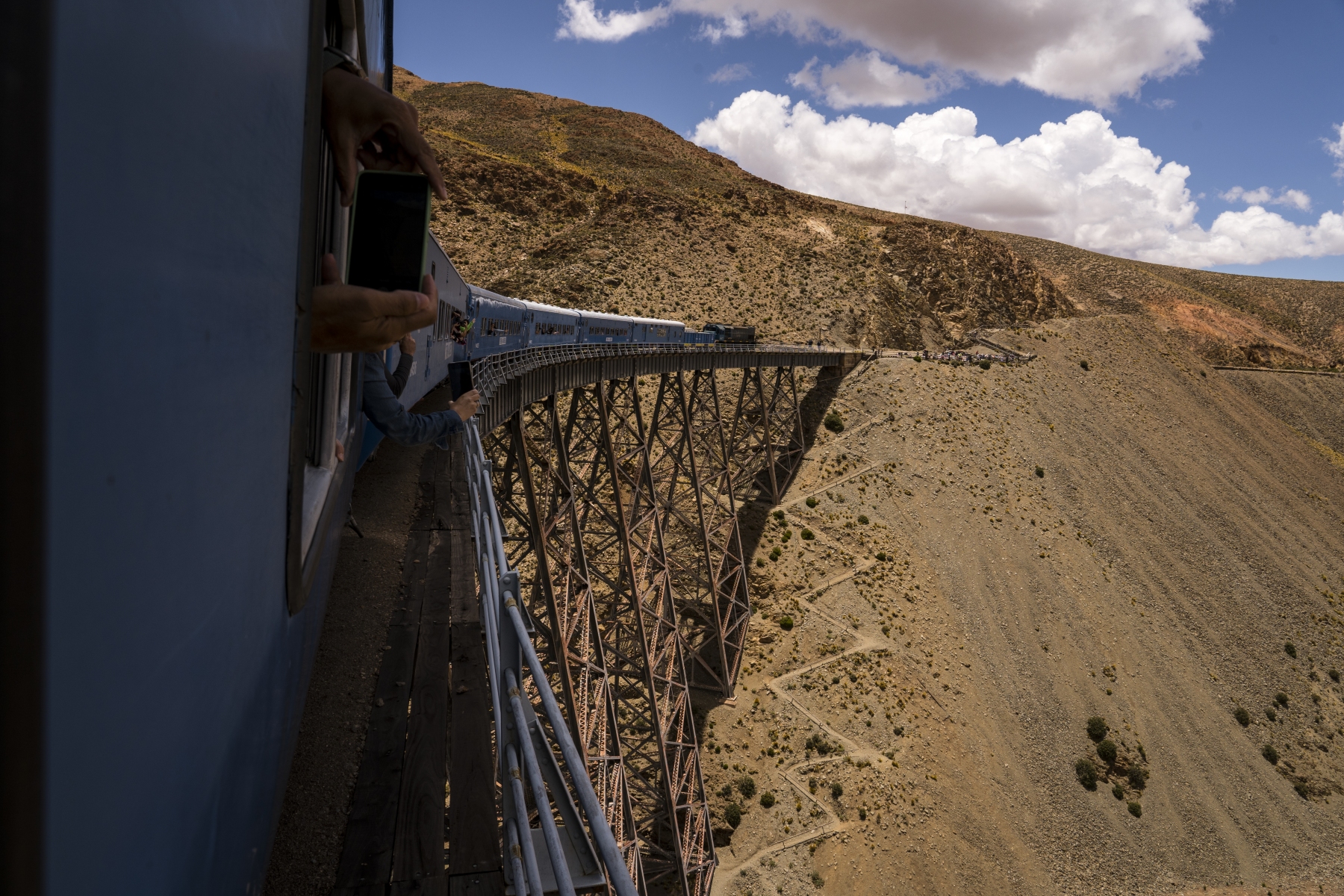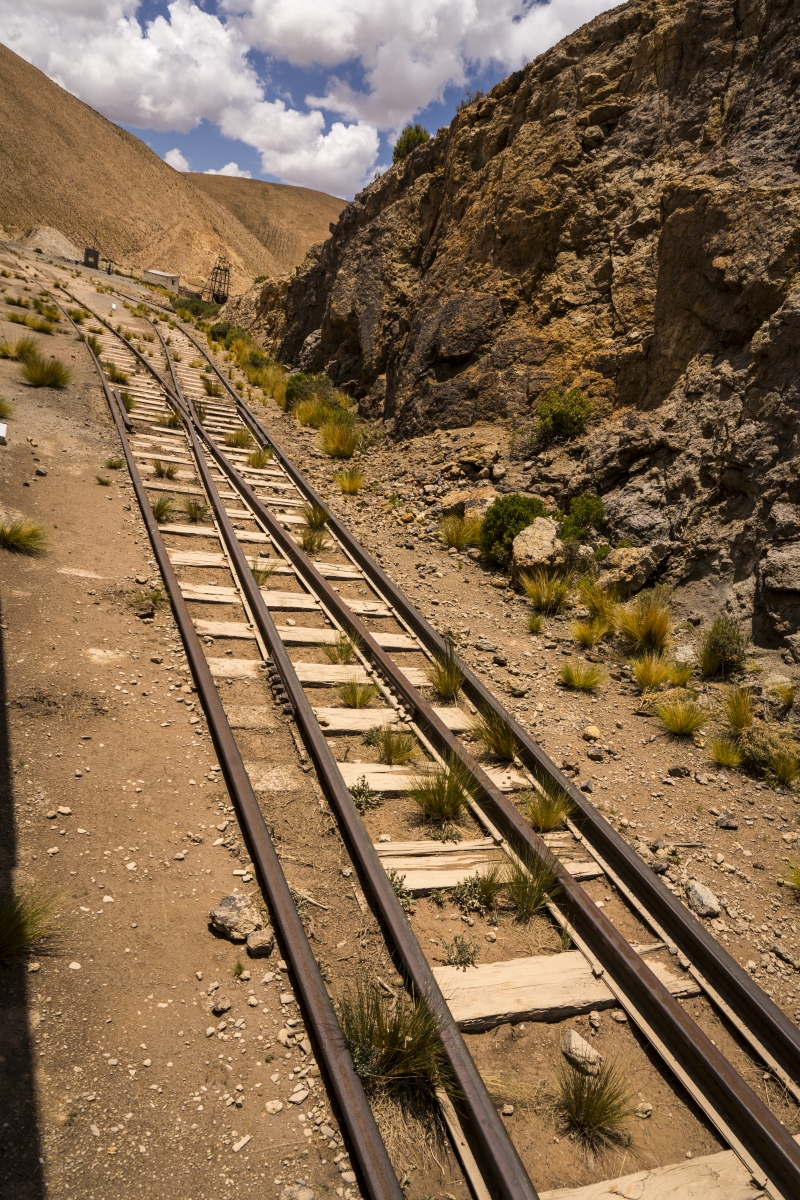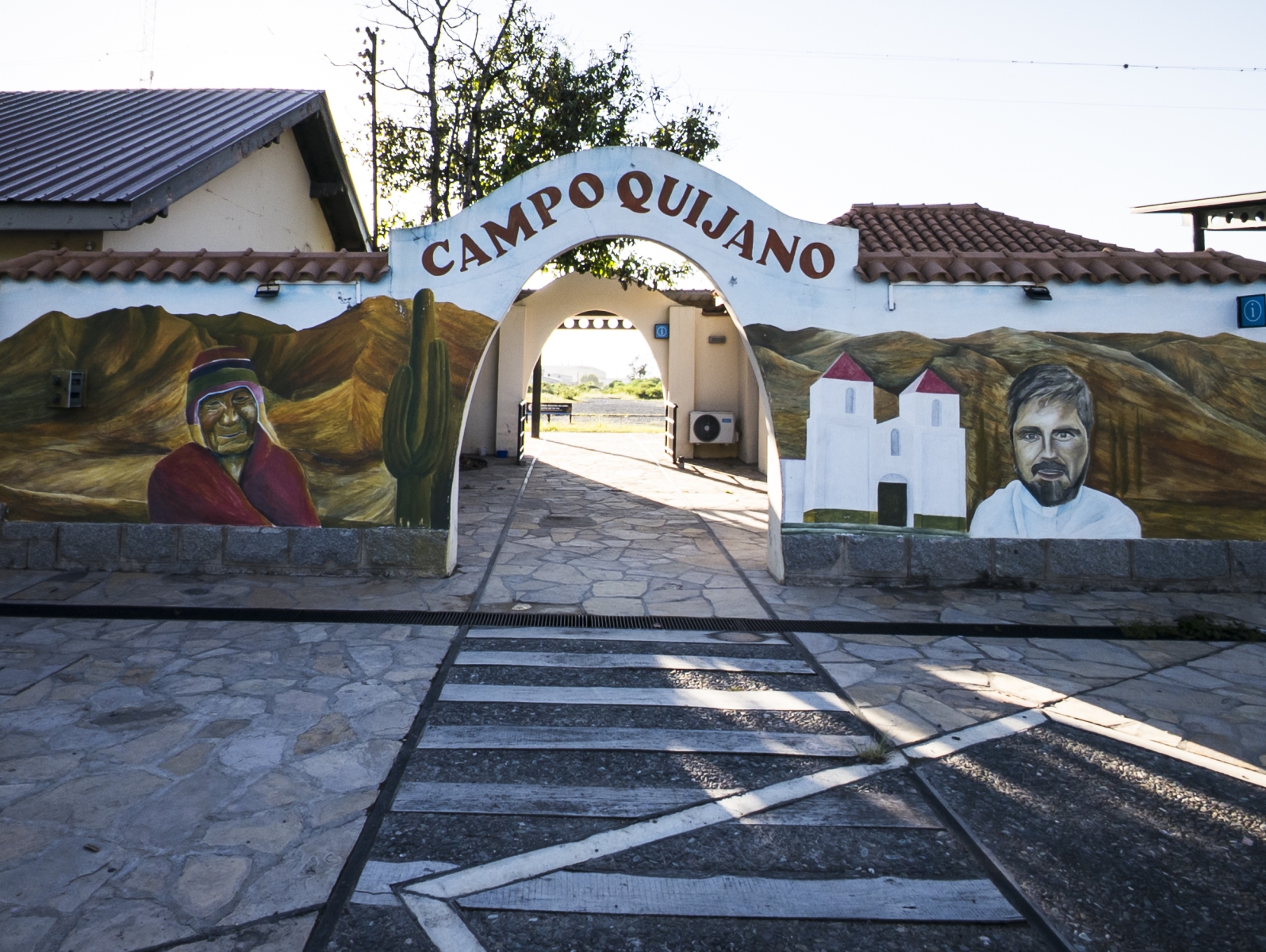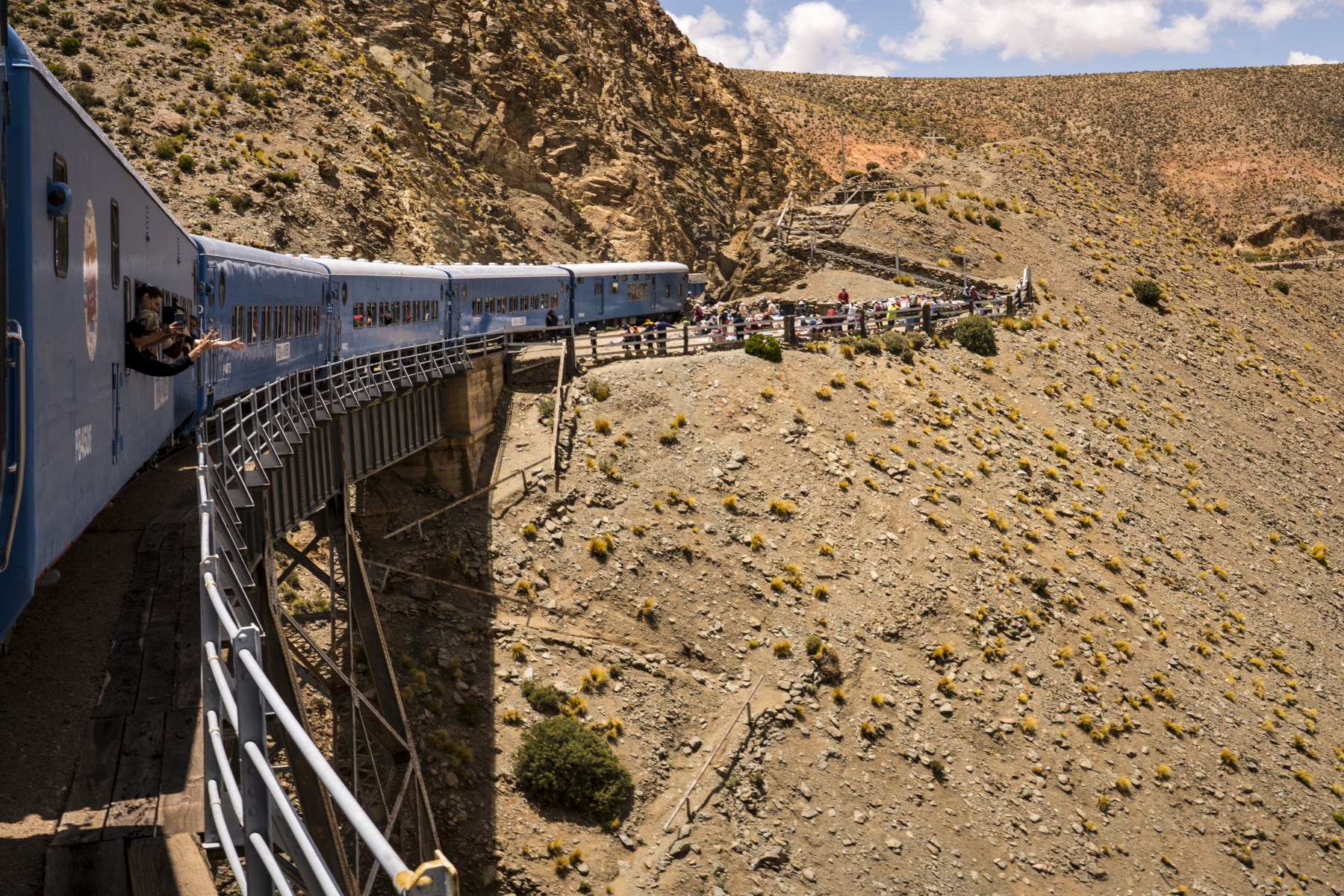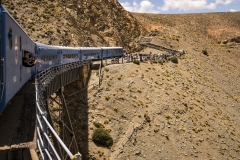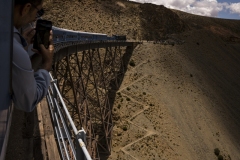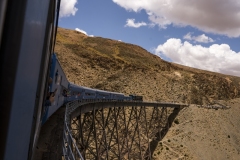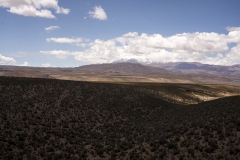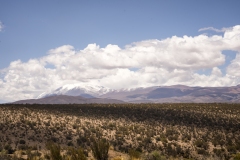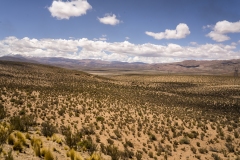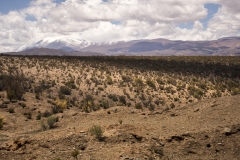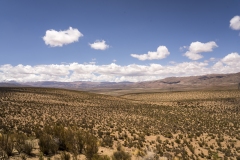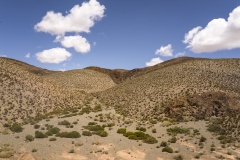The Train to the Clouds or “El tren de los Nubes” in Spanish is the fourth highest train in the world, after those in China, Peru and Bolivia. Train to the Clouds is a tourist train service in Salta Province, Argentina, that runs along the eastern part of the Salta–Antofagasta railway line of the Belgrano Railway.
The railway reaches 13,845 feet (4,220 meters) above sea level at the La Polvorilla viaduct, a curved bridge that is 735 feet (224 meters) long and 210 feet (64 meters) above the ground! The train was originally built for economic and social reasons, but now it is mainly a heritage railway that attracts visitors from all over the world.
This train offers a scenic journey through the Valle de Lerma, the Quebrada del Toro and the puna, with stops at various stations where local artisans and food vendors can be found. The train departs from San Antonio de los Cobres, where passengers arrive from Salta by bus, and returns to the same point after an 8-hour trip. The train has a dining carriage, a bar carriage, a first aid area and two passenger carriages with room for 170 people.
History of The Train to the Clouds
Historically, the Train to the Clouds dates back to the early 20th century, when an American engineer named Richard Maury designed a railway line that would connect Salta, in northwestern Argentina, with the Chilean border across the Andes Mountains. The railway was intended to facilitate trade and transport of goods between the two countries, but it also became a remarkable engineering feat that overcame steep slopes and harsh terrain. The railway line, also known as the C-14 branch of the Belgrano Railway, has 29 bridges, 21 tunnels, 13 viaducts, 2 spirals and 2 zigzags that allow the train to climb up to 13,845 feet above sea level at the La Polvorilla viaduct.
The Journey
Train Tickets
I am staying in Villa San Lorenzo, just outside the city of Salta for six days and the Train to the Clouds is one of the experiences I want to have while I am here. I found a local tour agency near the city central and booked the train tour in a couple days. The cost is $80 US and this agency accepted credit cards for payment with a small surcharge. One note to mention is that you need your passport to order tickets as a foreigner. I had both my US Passport and the passport card with me and just used the passport card for the purchases and they accepted that.
Bus Trip
To get to the train there is a two-hour bus trip first. I contracted a taxi to take me to the bus station at 6:00 am and waited in line to obtain our bus and train boarding passes from the counter. We had to have our passports to do this. Once we got the boarding passes there were several buses waiting to take all of the passengers to the train station. We were assigned buses by color and a seat number in the bus.
I found my bus and went to my assigned window seat and soon we were on our way to the train station. There were a couple short stops on the way for restroom breaks and to buy drinks ands snacks. One of our stops was in Campo Quijano and there were vendors here with food, drinks, and homemade crafts. We had a thirty-minute stop here and continued on.
Our next short stop was in Quebrada del Toro. This is a scenic gorge that the bus drove through. We had a 10-minute stop at one of the vista points and went on to Alfarcito. The bus trip included a box lunch, and we received the lunch at Alfarcito and has a 35-minute break here. Again, there were local venders with food, drinks, and hand-made goods for purchase. We had a chance to eat, stretch our legs, and talk with our fellow travelers. Finally, we got back on the bus to get to the train station.
Train Ride
Our buses arrived at the train station and we immediatley found our train car boarded and sat in our assigned seat. Fortunantely I had a window seat so I could take photographs and film easily. The train starts moving, the diesel smoke is flowing, and the train hoots it whistle!
Soon we were on our way to the highest point of the railway at the famous bridge – La Polvorilla Viaduct. The railway curves are tight, and it is a long train so on every bend you can peer out the window and get great shots of the train going around a bend and a mountainside backdrop.
We get to the bridge and the train slows way down and crosses slowly with great vantage points of the bridge, the train, and the canyon way down below. Once the train crosses the bridge, it starts backing up and goes back, this is as far as the train goes. We get all the way off the bridge and we stop for a 30-minute break.
There are venders here once again with food, drinks, and hand-made good for the tourists to buy. There is also an Argentina flag raising ceremony where they raise their flag while playing the Argentina National Anthem.
When we get back on the train, the porters and guides ask eceryone to switch sides of the train, so we have a different view on the return. Most did that and we got a new look from the way to get here. We got back to the station and took the long bus ride back to Salta and found our own way back to our respective hotels.
All in all, this was a wonderful experience, and I would highly recommend it, if you are in the Salta, Argentina area. In fact, this was the best expedition I went on during my six days here!
See our Adventures on YouTube: @HBMaverick
Check out our Adventures on our blogs page: Blogs – HB Maverick Filmmaking
“We will see YOU on the next adventure!”

